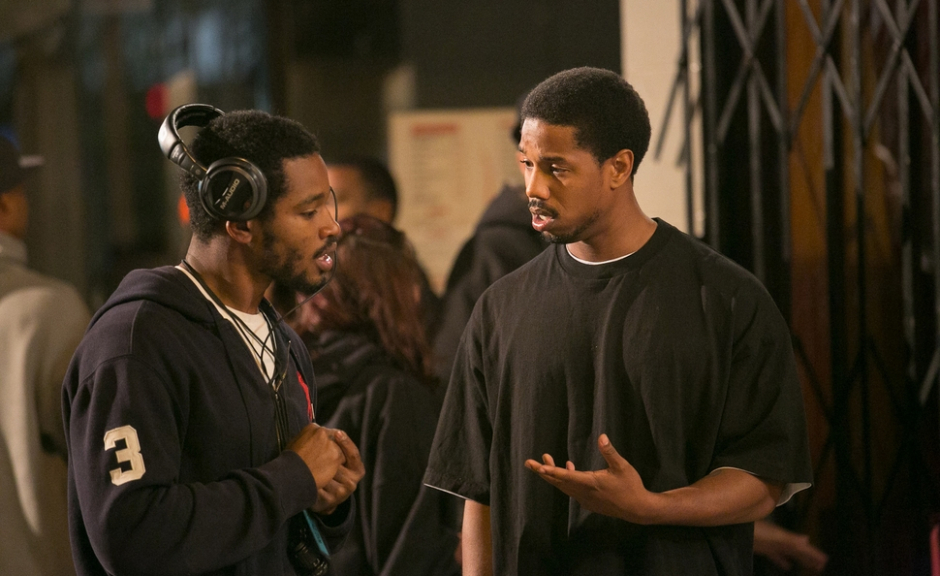Judges’ Comments: Fruitvale Station, a searing 2013 docu-drama about the last day in the life of a young African American man shot by police in the San Francisco Bay area in 2008. We thought: ‘The writing is controlled and intelligent and denotes the reviewer’s admiration for the film while allowing the reader to make up their own mind about whether this is something that will interest them or not.’ The reviewer also gave serious credit to its first-time filmmaker, Ryan Coogler, noting how he has since gone on to become one of Hollywood’s major ‘players’. Two of the three judges admitted they hadn’t seen the film before reading the review but were firmly persuaded by its eloquence to place it top of their wish-list ASAP.
Fruitvale Station (dir. Ryan Coogler, 2013): reviewed by Andrew Key
Fruitvale Station begins with some grainy and wobbly footage, recorded on a mobile phone, of the shooting by a police officer of Oscar Grant, a 22-year-old black man, at the Fruitvale BART station in Oakland, California, on New Year’s Day 2009. This is real footage of an actual event. The rest of this excellent film comprises a dramatisation of the events leading up to the shooting, starring Michael B. Jordan as Oscar Grant and Octavia Spencer as his mother. Fruitvale Station was released in theatres in the United States on July 12, 2013. On the next day, July 13, George Zimmerman was acquitted of murder after his shooting of a teenager, Trayvon Martin, the previous year: this acquittal sparked protests across the United States and the formation of the Black Lives Matter protest movement. Watching this film in May 2020, against the backdrop of renewed protests against police violence in the US, following the murder of an unarmed man held in police custody named George Floyd, Ryan Coogler’s directorial debut feels as timely now as it did on its first release.
Coogler, himself a native of the San Francisco Bay Area, has made a deeply perceptive and moving docudrama which resists the impulse towards polish and heroics that might be found in other biographical films of this ilk. In Fruitvale Station, Oscar Grant is depicted without judgment as a normal and complex person, living a fairly typical life for a young black man in Oakland. He has spent time in prison and he has a short temper, but these are not things to be condemned and nor are they depicted as sociological facts seen by an outside observer: they are just elements of a life, understandable and normal within their context. Grant is a father of a young daughter, trying to straighten out his life. He is a loving son to his mother. It is his normality which Coogler emphasises, and which Michael B. Jordan draws out of his impressive and understated performance. There is nothing particularly remarkable about Grant’s life, up until its end, and this is what makes the film so distressing to watch. Indeed, the real accomplishment of Fruitvale Station is this centring of the everyday nature of police brutality towards black people in America, combined with the feeling of interruption and horror which accompanies these deaths in police custody, set against the backdrop of regular life.
From the beginning Fruitvale Station is suffused with an atmosphere of grim tension: mundane interactions are transfigured by the climax we know is coming, by the dramatic irony that comes from our watching Grant wander unknowingly towards his shocking death at the hands of a police officer. By opening the film with actual cell phone footage of the shooting, Coogler establishes a mood of dark necessity which permeates every scene of Fruitvale Station. We watch a man go about his daily life: it’s his mother’s birthday, he has to buy a card for his sister, he argues with his partner, he makes up with his partner. We know where this is leading, even if nobody in the film does. There are moments of foreshadowing: moments that risk becoming heavy-handed, but which never quite slip into feeling excessive or too portentous. When Grant sees a dog get hit by a speeding car and left to die in the street, carrying it into the forecourt of a gas station, staining his shirt with its blood, crying out for passersby to help him, we know that he is going to be shot and killed for as little reason as the dog was run over. When Grant says goodnight to his daughter, who is worried about the noise of fireworks outside, we know it’s the last time they will see each other. Perhaps some of these scenes might feel cynical in another context, or emotionally manipulative, but here they work to draw us further into the film, to absorb us. In doing so they make the climax of the film—a scene which enormously painful and difficult to watch, even though we know it’s coming—much more affecting. We are drawn into the rhythms of Grant’s life, and we are made to feel the ruptures which his death causes, not only in his child’s life, or his partner’s life, or his mother’s life, but in the lives of his community, his city—his country, even. Fruitvale Station humanises Grant, it makes his life feel real and meaningful in a way that news reports do not, and perhaps can not. It reminds us that every death in police custody—whether it takes place in California, in Minnesota, in London or in Manchester—is the cruel and unnecessary interruption of a life.

